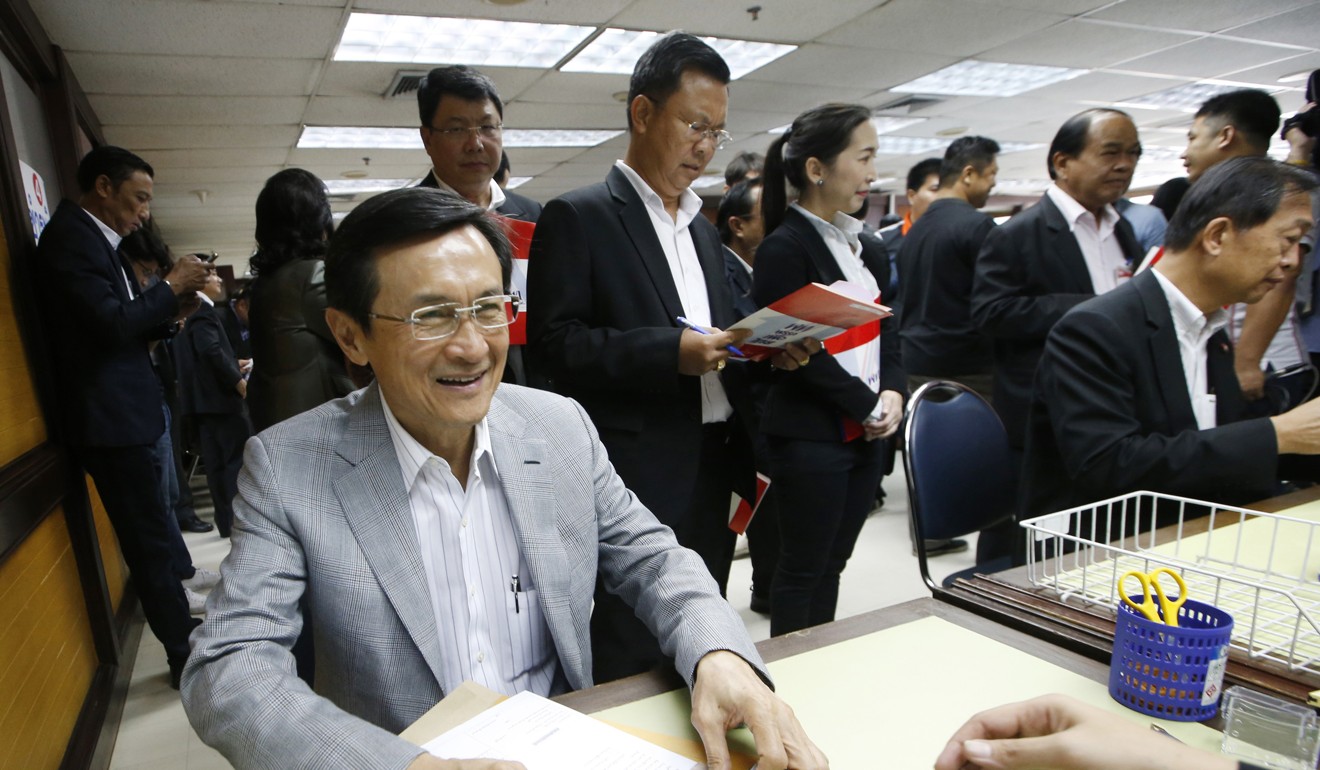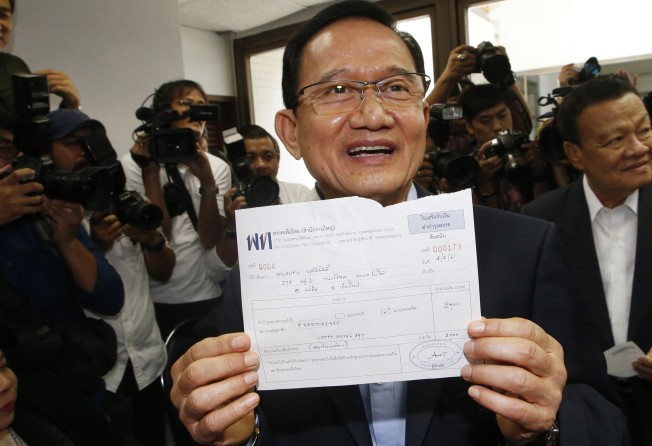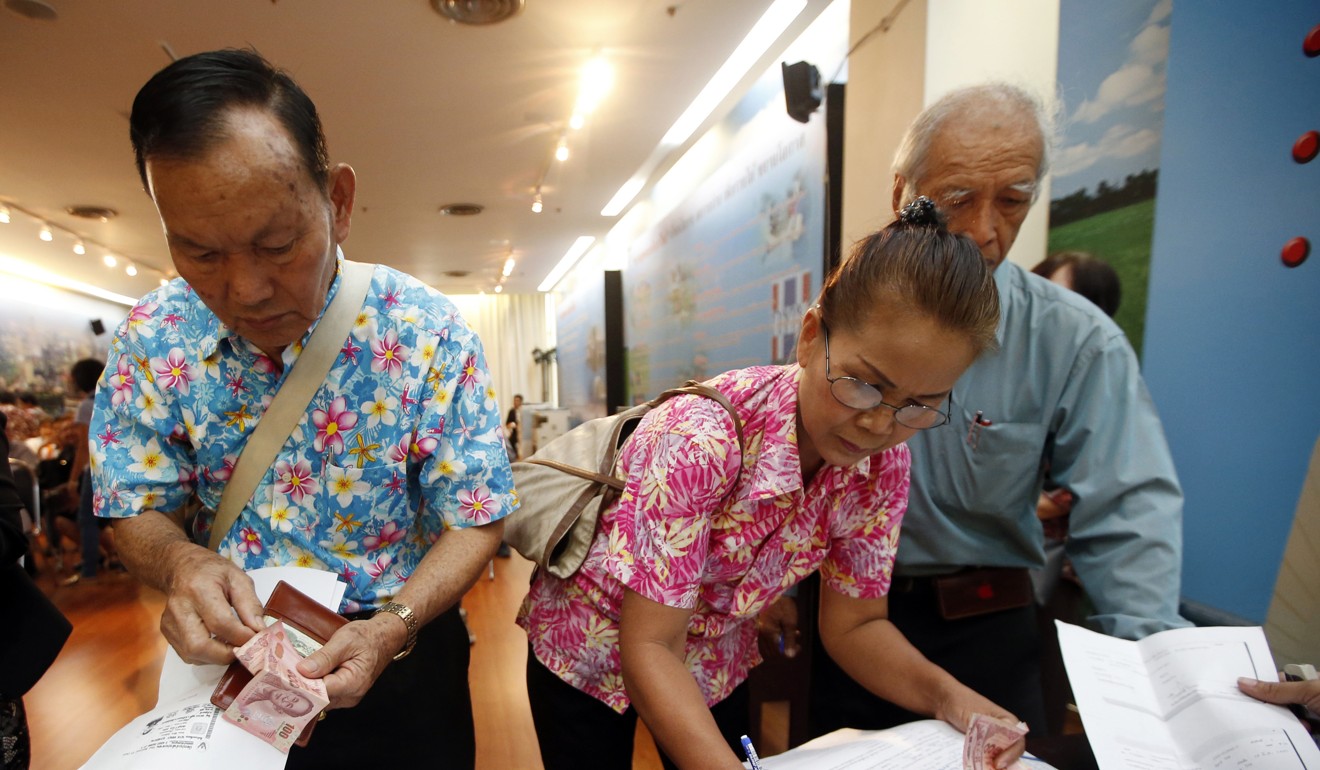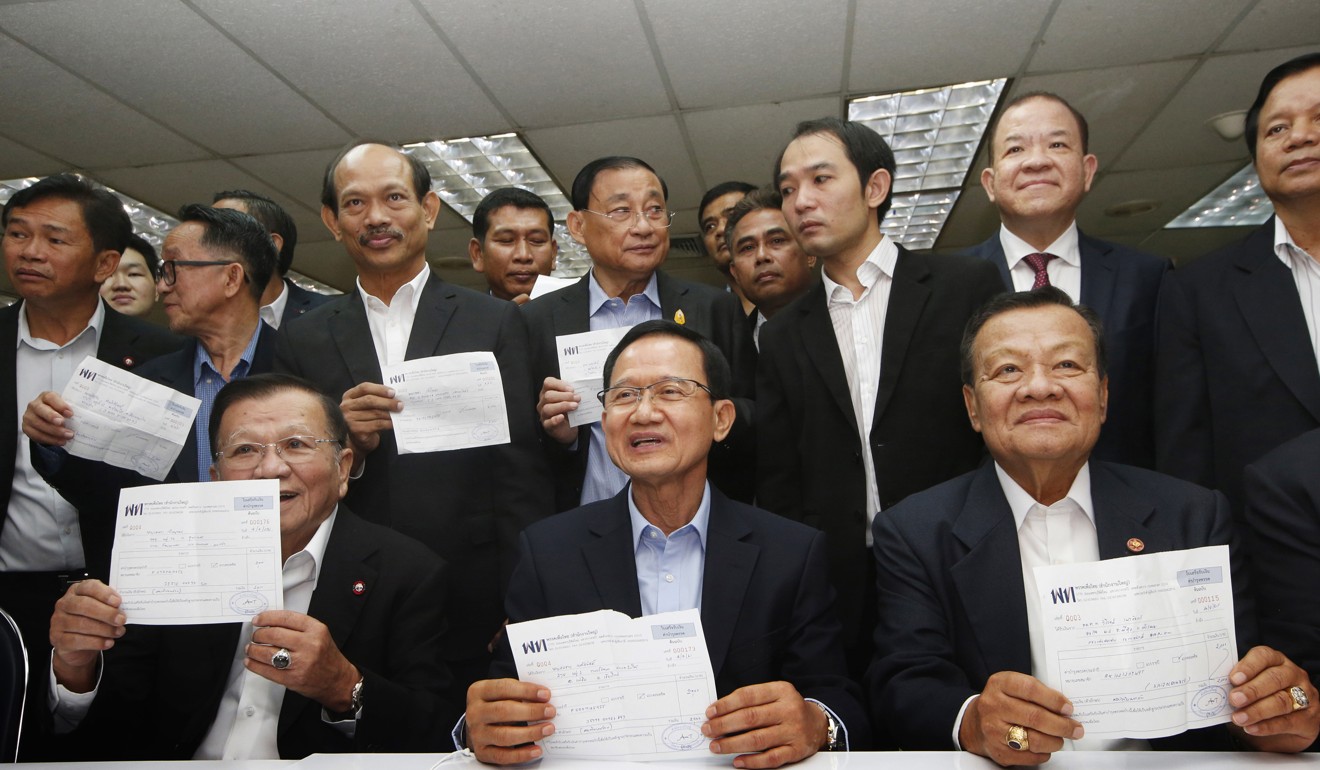
Rising from the dead: Shinawatras’ Pheu Thai Party registers members for 2019 elections
The ruling junta, having promised polls for February next year, is now allowing new and old parties to register their members, with a minimum of 500 needed to sign up in 30 days to qualify

The Thai political group that has won every national election since 2001, only to be forced out of power repeatedly by non-electoral means, has taken an initial step on a comeback trail, registering its members to contest polls promised for early next year.
The Pheu Thai Party last held power in 2014, when an army coup ousted it and installed a military government that until last month banned almost all organised political party activity.
The ruling junta, having promised an election for February next year, is now allowing new and old parties to register their members, with a minimum of 500 needed to sign up in 30 days to qualify.
Pheu Thai members, representing the legacy of former prime minister Thaksin Shinawatra, the party’s guiding light, signed up this week at its headquarters. Former lawmakers and senior figures, as well as ordinary supporters, came to help get the party back on its feet.
It has been overthrown twice under different names by the military, and twice was dissolved by the courts. But judging by the enthusiastic reception for former prime minister Somchai Wongsawat as he entered the headquarters, Pheu Thai members are eager to rejoin the fray.

Ahead of the general election promised for 2019, the junta has imposed new and complex electoral rules. Their architects say they make politics more open and inclusive, but critics say they are specifically designed to stop Pheu Thai from repeating the crushing victories that gave it solid parliamentary majorities.
“Some forces dislike us, disagree with us, and try to sort us out, but it’s what happens, and we and the people have to find our way out of it,” said the party’s general secretary, Phumtham Wechayachai.

Those forces have proved persistent. Thaksin Shinawatra, head of what was then called the Thai Rak Thai party, fell to a coup in 2006. Court decisions removed two prime ministers from its successor People’s Power Party in 2008, leading to its coalition government being forced to yield power. Thaksin’s sister, Yingluck Shinawatra, came to power in a 2011 election, only to be forced out of office by another controversial court decision soon before the army seized power again.
But throughout it all, the appeal of the family behind the party – the Shinawatras – has endured. Their carefully targeted populist policies won a large and devoted following. How much Thaksin Shinawatra and his sister Yingluck, both in exile to avoid jail terms, can still sway voters today may be key to Pheu Thai’s future fortunes. Open involvement in the political fray could jeopardise the party’s legal standing.

One analyst believes it will do well at the polls because Thailand is still deeply polarised and Pheu Thai is a rallying point against the junta and the elite – often known as the “yellow shirts” – who loathed Thaksin Shinawatra.
“Everyone who does not like the coup, regime, doesn’t like the yellow shirts, doesn’t like the conservative politics. What they can do? They have only one choice. They have the Thaksin party to vote for,” said Prajak Kongkirati, a professor at Bangkok’s Thammasat University.
Some senior figures on Wednesday voiced concern over the effect of the junta’s long political ban on the party’s ability to organise effectively before the promised election.
“The result of the political ban is that the party cannot communicate with the people, is not allowed to exchange ideas with the people about policies,” said Chaturon Chaisang, a former education minister. “It is a limitation to the political parties. Because of that, we shouldn’t take it for granted that our party will be strong without working real hard.”
For one woman signing up as an ordinary member, Pheu Thai’s importance was clear.
“They help poor people and poor people need them. We are suffering right now,” said Supa Nuchapong, a 50-year-old fruit seller from the outskirts of Bangkok.